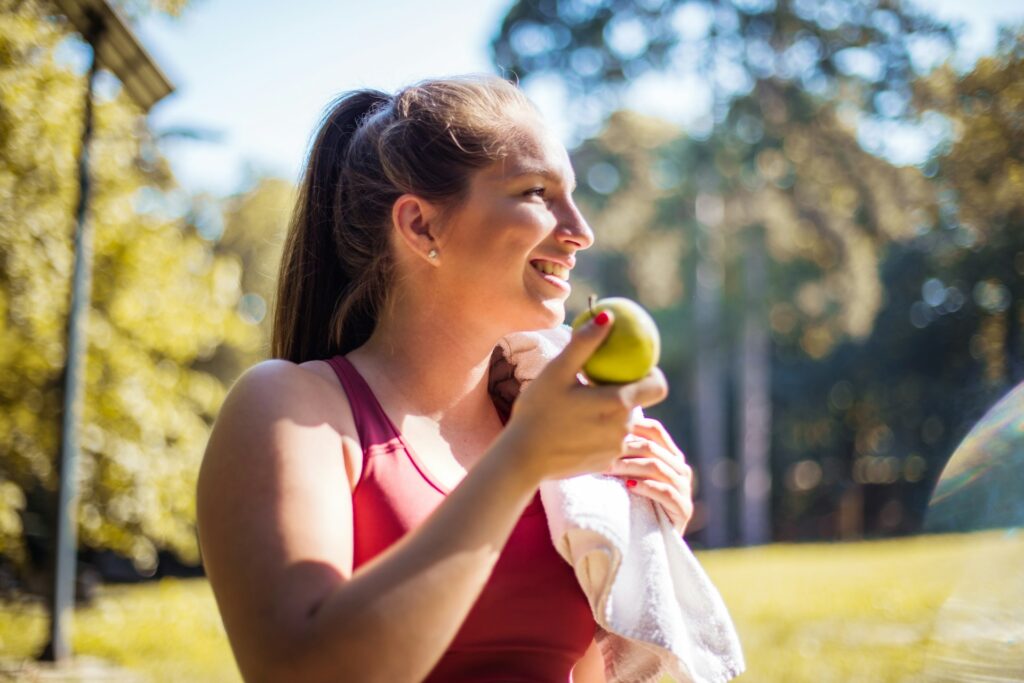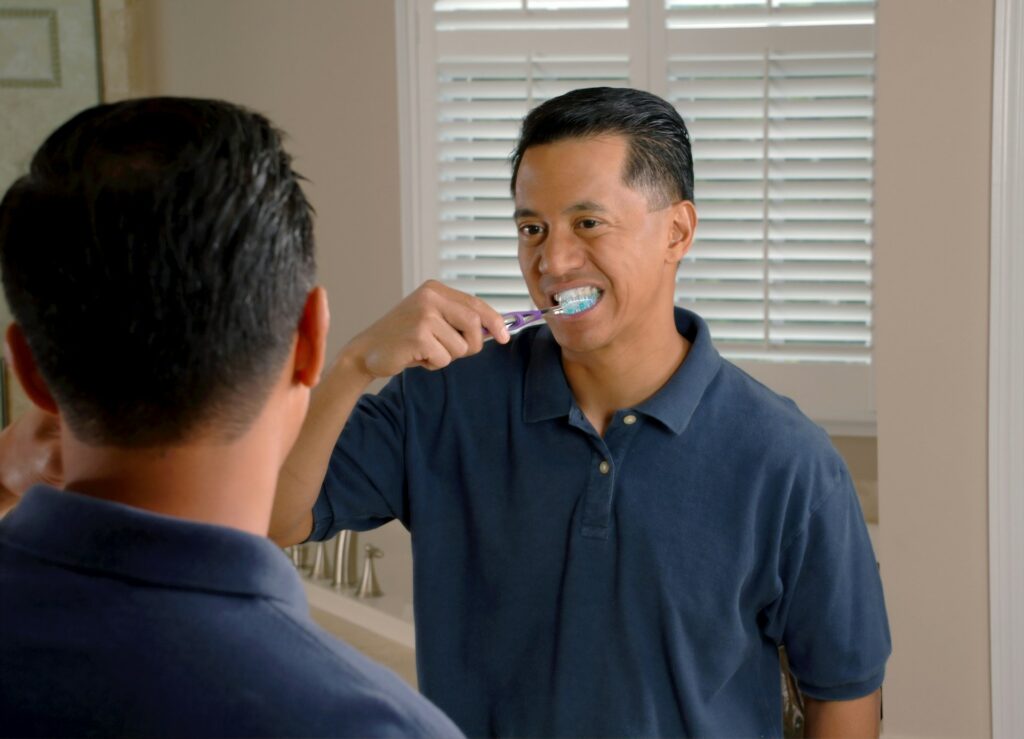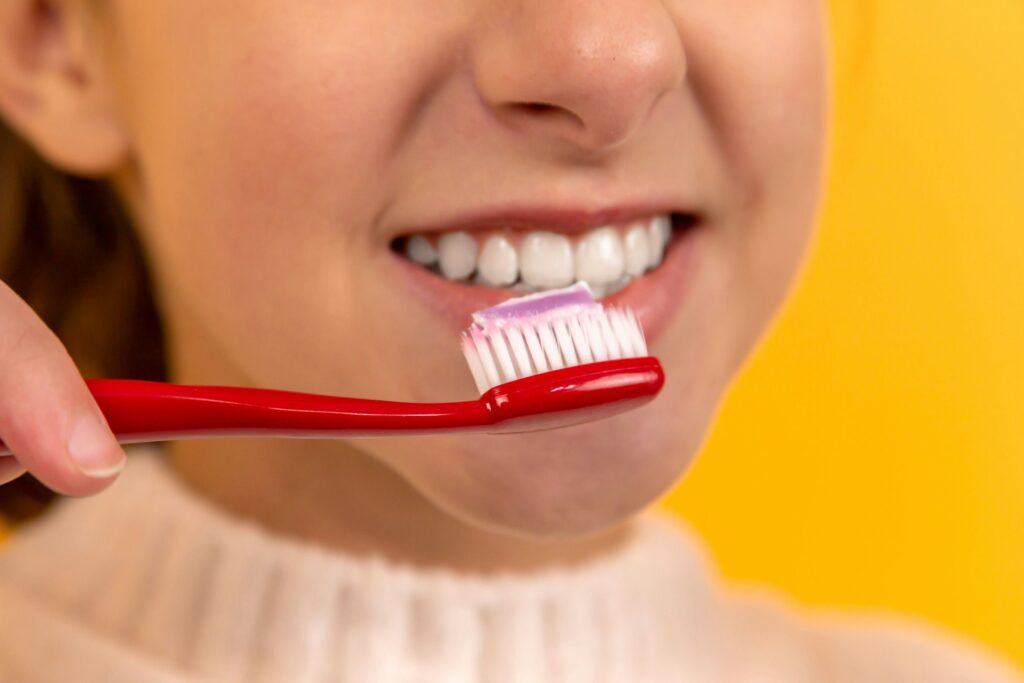In an age of endless selfies and video calls, your smile has never been more on display. Yet achieving that effortlessly radiant grin isn’t about expensive treatments or complicated routines – it’s about mastering the small, daily habits that make all the difference. From what’s on your plate to how you wield your toothbrush, here’s your guide to transforming your teeth into your best accessory.
The Morning Ritual That Sets The Tone
Your teeth have been under attack all night from bacteria that thrive whilst you sleep. Starting your day with the right approach can determine whether you’re fighting an uphill battle or setting yourself up for success.
Rather than reaching for your toothbrush immediately after waking, consider starting with a glass of water. This simple act helps neutralise the acidic environment in your mouth and kickstarts saliva production – your body’s natural defence against decay.
When you do brush, technique trumps duration. Dental professionals recommend the ‘modified Bass technique’: angle your brush at 45 degrees towards the gum line and use gentle, circular motions. Think massage, not scrub. Your enamel will thank you for the gentle approach.

The Diet Decisions That Show In Your Smile
What you eat doesn’t just affect your waistline – it’s written all over your teeth. The modern diet poses unique challenges, from hidden sugars in ‘healthy’ smoothies to the acid attack from your morning coffee ritual.
Understanding the impact of your food choices is the first step towards a diet that supports, rather than sabotages, your smile. The relationship between nutrition and oral health is more intricate than most people realise, with some supposedly healthy foods causing more damage than the occasional sweet treat.
Smile-Friendly Foods:
- Crunchy vegetables like celery and carrots act as natural toothbrushes
- Cheese neutralises acid and provides calcium
- Green tea contains polyphenols that fight bacteria
- Strawberries and apples contain malic acid, a natural whitener
The Hidden Villains:
- Dried fruit clings to teeth like sweet glue
- Sports drinks bathe teeth in sugar and acid
- White wine is surprisingly more acidic than red
- Ice chewing can cause microscopic cracks
The timing matters too. Grazing throughout the day means your teeth never get a break from acid attacks. Try to consolidate eating into meals, giving your saliva time to remineralise teeth between sessions.
Read: What are the worst (and best) culprits for staining your teeth?

The Brushing Mistakes Everyone Makes
Even the most diligent brushers often sabotage their efforts without realising it. We’ve been brushing our teeth since childhood, which means we’ve potentially been reinforcing bad habits for decades. The techniques that seemed logical when we were five – scrubbing harder for cleaner teeth, rinsing thoroughly after brushing – can actually work against us. Breaking these ingrained patterns requires conscious effort, but the payoff in terms of healthier teeth and gums is substantial. Here are the habits to break:
Brushing Too Soon After Eating: Wait at least 30 minutes after consuming anything acidic. Brushing immediately can actually brush away softened enamel.
The Harder-Is-Better Myth: Aggressive brushing doesn’t equal cleaner teeth. It leads to receding gums and enamel erosion. Choose a soft-bristled brush and let it do the work.
Ignoring The Tongue: Your tongue harbours bacteria that contribute to bad breath and tooth decay. A gentle brush or scrape should be part of your routine.
Rinsing After Brushing: This washes away the protective fluoride. Instead, spit out excess toothpaste and let the fluoride continue working.
Read: 8 surprising tooth brushing mistakes that could be sabotaging your smile

The Investment Protection Plan
Whether you’ve invested in professional whitening, orthodontics, or cosmetic enhancements, your daily habits determine how long those results last. Many people spend thousands on their smiles only to undermine their investment with poor maintenance.
If you’ve had cosmetic work done, certain habits become even more crucial. Avoiding staining foods and drinks in the first 48 hours after whitening, using a straw for beverages that might stain, and maintaining meticulous hygiene all contribute to longevity. Those seeking the best composite bonding results, for instance, should be particularly mindful of habits like nail-biting or using teeth as tools, as these can chip or damage the bonding material.
The good news? The same habits that protect cosmetic work also prevent the need for it in the first place. Prevention truly is the most cost-effective cosmetic treatment available.
The Weekend Sabotage Cycle
Weekends often spell disaster for dental routines. The structure that keeps us on track Monday through Friday disappears, replaced by late nights, leisurely mornings, and social events that revolve around food and drink. It’s remarkably easy to go from Friday evening to Sunday night having barely thought about your teeth, yet this is when they need attention most.
Late nights lead to skipped brushing, whilst leisurely brunches mean prolonged acid attacks from mimosas and multiple coffees. Social drinking adds another layer of challenge.
Creating weekend-specific strategies can help:
- Keep travel-sized dental supplies in your bag for nights out
- Alternate alcoholic drinks with water
- Choose clear spirits over sugary cocktails
- Never go to bed without brushing, no matter how tired
Remember, two days of neglect can undo a week of good habits. Your teeth don’t take weekends off from decay.

The Evening Wind-Down Your Teeth Deserve
Your nighttime routine is arguably more important than your morning one. During sleep, saliva production decreases dramatically, leaving your teeth vulnerable to bacterial attack for hours. This is your chance to remove the day’s accumulation and prepare your teeth for the overnight battle against bacteria. The effort you put in during these few minutes before bed can mean the difference between waking with fresh breath or that fuzzy-teeth feeling that signals bacterial overgrowth.
Flossing might feel like a chore, but it reaches the 40% of tooth surfaces your brush can’t touch. If traditional floss feels awkward, try floss picks or water flossers – the best tool is the one you’ll actually use.
Consider adding an alcohol-free mouthwash to your routine. The alcohol-free aspect is crucial; alcohol dries out your mouth, reducing saliva production when you need it most.
The Lifestyle Factors You Haven’t Considered
Your oral health doesn’t exist in isolation. It’s intricately connected to your overall wellness, stress levels, and daily habits that seem unrelated to your teeth. Many people meticulously brush and floss yet still struggle with dental issues because they’re overlooking these broader lifestyle factors. Understanding these connections can be the key to finally achieving the healthy smile that’s eluded you despite your best efforts. These surprising factors all play a role:
Stress and Grinding: Night-time teeth grinding can undo years of good care. If you wake with jaw pain or headaches, consider a night guard.
Hydration Levels: A dry mouth is a breeding ground for bacteria. Keep water nearby, especially if you take medications that reduce saliva production.
Breathing Habits: Chronic mouth breathing dries out your oral cavity. If you snore or wake with a parched mouth, it might be time to investigate.

The Professional Partnership
While daily habits form the foundation, professional care provides the framework. Think of your dentist as your smile’s personal trainer – they can guide, advise and intervene when needed, but the real work happens between visits. Too many people view dental appointments as something to endure or avoid, missing the opportunity to build a collaborative relationship that enhances their home care efforts.Regular check-ups catch problems before they become painful (and expensive). Your dentist or hygienist can also provide personalised advice based on your specific needs and goals.
Professional cleanings remove tartar that home care can’t touch, whilst examinations can spot early signs of decay, gum disease, or oral cancer. Think of these visits as investments in your smile’s future.
The Bottom Line
A healthy smile isn’t built overnight, but the compound effect of good daily habits is remarkable. Within weeks, you might notice fresher breath and less bleeding when flossing. Within months, stains may fade and sensitivity decrease.
The real transformation isn’t just physical. There’s a particular confidence that comes from knowing your smile is genuinely healthy – not just Instagram-ready, but built on a foundation of excellent care. It’s the difference between hiding your teeth and sharing your joy freely.
Your camera-ready smile isn’t about perfection; it’s about health, vitality, and the small choices you make every day. Start with one new habit this week, and watch how it transforms not just your teeth, but your entire approach to self-care.





